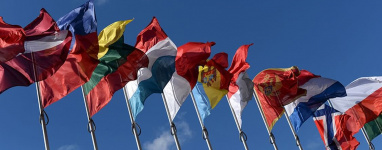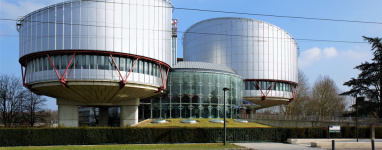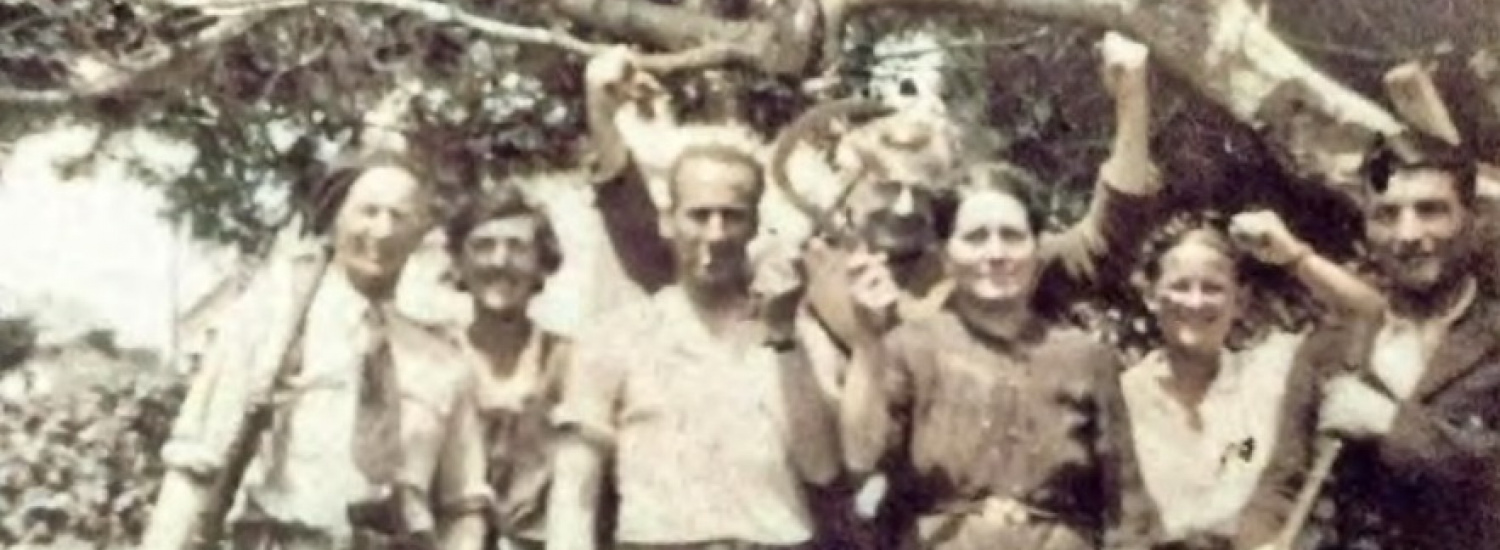The fate of the Vesnin family
The war entered my life together with my father’s stories , who was a member of the Resistance Movement. I heard from him that there were many Russians in the Resistance Movement. The French did not mention it. The further away this common page of our history is from us, the more precious its memory becomes both in France and in Russia.
After the capitulation of France on June 22, 1940, the anti-fascist movement began with student demonstrations and a miners' strike. Russian named Borys Wilde was the first to call this Resistance Movement. "Partyzan Song" - the hymn of the French Resistance is also written by the Russian emigrant Anna Yurievna Smirnova-Marly (1). But the armed struggle became only after the entry of the Soviet Union into the war. 125,000 Soviet citizens were sent to concentration camps and to work in France, 3,000 Soviet citizens, who escaped, fought in partisan units. Among them were Kalugians who fought in Lorraine, near Bordeaux and on the island of Ile d'Oleron. But I was interested in the destiny of two residents of Kaluga belonging to the Russian emigration, Boris Vesnin and his son Yuriy, because they are closely connected with the city of Montpellier.
Father of Borys Vesnin Cornet Borys Vesnin
The father of Borys Vesnin, a hereditary nobleman, died in Kaluga from wounds received in Port Arthur. The son fled to the front at the age of 17 and for his courage was awarded the St. George Cross and the rank of cornet, then he joined Denikin's army, then in 1919 he emigrated from Novorossiysk to Greece, after worked in Bulgaria, Turkey, and in 1923, hired as a sailor on a traveling ship , went to Marseille, where he met Iryna Mykhailivna Orlova, his future wife.
The Vesnin and Orlov families at the Kustelet farm
Together they moved to Montpellier, and at the beginning of the war they rented from an acquaintance Mr. Roux the Coustelet farm, located 6 kilometers from the city, which became one of the strongholds of the partisan movement.
The place where the Kustelet farm was located
The place where the Bertrand detachment was based
A week after the German attack on the Soviet Union, all Russians who did not accept French citizenship began to be arrested for verification. In the archives of the national gendarmerie, we found the record of the arrest of Borys Vesnin under No. 1648 dated July 2, 1941.
Protocol of the gendarmerie of Montpellier on the arrest of Borys Vesnin
Together with the students of KSU, who were doing internships in Montpellier, they searched for the place where the farm was situated. There is no farm there, but the house of Mr. Roo, in which his son and his wife live, remains. He remembers the Vesnin family well. It was very interesting to hear the story about that time, although he could not know what actually happened on the farm, he was only surprised that there were always many people there. It was explained simply. In 1942, a partisan unit began to form in the mountains under the leadership of Major Beffre of the French army, who received the nickname "Bertrand". The squad was called "Maki Bertrand". Borys Vesnin sent Soviet prisoners of war, who had escaped from the camps, in this squad. Near the farm flowed the Rjeculon stream with its banks overgrown with bushes. It was easy to go unnoticed there (2). Yuriy Vesnin helped his father. The Germans often saw a boy riding a bicycle, but it never occurred to them that he was an important partisan liaison (3). A whole Soviet company was formed in the detachment. Fighters of the squad carried out sabotage on the Montpellier - Seth railway line, blew up military warehouses with ammunition and food, attacked small fascist garrisons, blocked roads between the cities of Montpellier and Mand. In the vineyards, under the guise of workers, there were always 17-18 prisoners of war who formed a mobile group to help the partisans. The materials we found in the archives tell us about the actions of Maki Bertrand's squad, but the Russian company is not singled out, there is only information about its commander Stefan Pankratovych, who was from Belarus. There is an archive of Major Beffre, but so far it has not been possible to meet his relatives.
Jean Sayad (author's father) served together KSU students visiting Mr. Ruwith B. Vesnin in the 81st regiment in Montpellier in 1944
At the end of 1943, the "Maki Bertrand" detachment became a battalion and controlled the Béziers - Frontignan - Montpellier area. The Vesnin family joined it. The Kaluga Archive stores authentic documents from that time. A trip to the location of the detachment made it possible to see the places where the "maki " were hiding and to talk with local residents.
The battalion liberated the cities of Sète, Béziers, Montpellier, Marseille, and in 1944 it turned into the 81st regiment of the 1st French Army under the command of Charles de Gaulle, where Borys Vesnin, as a junior lieutenant, commanded a Russian semi-detachment. I think my father, a junior lieutenant in the 81st regiment, might have known him.
Location map of the Bertrand detachment
In the liberated cities, Borys Vesnin was assigned to organize units of the Union of Soviet Patriots, and in 1945 he joined the France-USSR society. The Vesnin family always dreamed of returning to the Motherland. All these years they renounced their French citizenship and Nansen passport, keeping their Russian one. In 1947, this dream was realized, together with the family of M. Orlov, Irina Mykhailivna's brother, they returned to Russia. In France, the book "Face and Reversal" (4) was published, which describes this tragic return in detail. A semi-documentary, semi-fictional novel about the Orlov family makes a strong impression. All characters are under their names: Borys and Iryna, Mykhailo Orlov and his wife Sesil, his father Mykhailo Vasyliovych and mother Viktoriya Ivanivna (5). The novel is written based on the memories of Mykhailo Orlov's children, who returned to France. This family is very famous in Russia since the time of Catherine II. The two families traveled part of the track together, then from Grodno the Orlov family with six children were sent to Kostroma, and the Vesnin family with Viktoria Ivanivna and three children were sent to Klyavlin, Kuibyshev Region.
On the 50th anniversary of Stalin's death, the French reporter-journalist Nicolas Jallot wrote the book "Beguiled by Stalin" (6), which complements the film he made about French and Russian emigrants who voluntarily came to the USSR after the Second World War. Their fates were tragic. It seems to argue with another film “The Man We Loved Most” from 1949 with the participation of Paul Eluard and Louis Aragon. At that time, Stalin was adored in France, and the film talked about the gifts to "the most beloved of all people" for his 70th birthday: hundreds of woolen socks from Normandy, wooden clogs and toys, teddy bears made of non-ferrous metal, tens of thousands of letters and greeting cards from schoolchildren, teachers, workers and peasants. Borys Vesnin remembered that when they left for the Motherland, they were seen off with shouts: "Hello, father Joseph!". That's how Stalin was called in France. He had a special authority, so the call to return to the Motherland was responded to with enthusiasm (7). They were trustful and naive when it came to the lost Motherland, they wanted to share their fate with her, but they had no idea what hell the Soviet Union had gone through. It was a different country, a stranger. Half-destroyed, she was just beginning to rise from the ruins, and people without a roof over their heads, almost without food and clothes could not understand why these strangers returned to them. It was necessary to survive. And they survived. Short-spoken lines about wandering in the story of B.M. Vesnin, full of bitter memories of Elizaveta Orlova-Borovik, daughter of Mykhailo ... (8). The Vesnin family and Viktoriya Ivanivna were able to come to Kaluga only in 1951.
In 1962 the department of French was opened at the Faculty of Foreign Languages in the KSPU named after K. Tsiolkovsky and Yu. Vesnin became the first teacher there.
Yu. Vesnin in Kaluga
After the conclusion of the agreement on cooperation between the metropolis of Montpellier and the Kaluga region, the Association of Friendship with Russia and the CIS countries of Montpellier restored ties with Kaluga and closely cooperates with the French department of the Kaluga University. It was a surprise for us to learn that the paths of Kaluga and Montpellier crossed for the first time at that turning point in history when the fate of the world was being decided. This shared page of history unites us and gives hope that we will always remember it.
Links to documents:
1. The song was written in Russian. The French version is by Maurice Druon and Joseph Kessel.
2. T. Romanova "Missing persons", Golden Alley, 2000, pp. 73-83.
3. “Let's bow to both the dead and the living”. Book of memory of joint-stock company "KZAME-holding". Kaluga, May 9, 1945, pp. 136-137.
4. France Parisy-Vichon “Vers et revers” De Montpellier a Kostroma, 2002.
5. Viktoriya Ivanivna Orlova, in her maiden name Yakhnenko, is from a well-known family of sugar growers and patrons in Ukraine. The firm "Brothers Yakhnenko and Simyrenko" paid for the third edition of "Kobzar" by Taras Shevchenko.
6. Nicolas Jallot "Pieges par Staline", 2003.
7. This is about the Decree of the Presidium of the Supreme Soviet of the USSR "On the restoration of citizenship of the USSR to subjects of the former Russian Empire, as well as persons who have lost their Soviet citizenship and live on the territory of France." There was not a single word about amnesty for “whites” in the Decree.
8. "Mika, come back to Russia", Eastern Bazaar magazine, No. 90, July 2006.


















Залишити коментар